|
Now that the June 15th deadline has passed and college coaches can reach out to high school athletes, the pressure felt by athletes is palpable. When I work with athletes, we collaboratively establish a mental game plan to assist them in preparation for a diverse variety of challenges ahead.
For example, when a student athlete learns to focus on small, but impactful goals, I notice a shift in their mindset. As the internal pressure for perfection decreases, the motivation to instead achieve excellence increases. Instead of focusing on the outcome of performance, we work on developing intentional awareness to areas of the game they want to improve. I believe sports are played with the body, but are won in the mind. And if an athlete concentrates primarily on impressing others through their performance, they are creating extra-tension which clouds purpose, passion and can lead to burnout. If you or your student athlete is feeling overrun with pressure, let's get a game plan together. I am beyond excited to share that I have been recently selected as a participant for the United States Olympic & Paralympic Committee mental health registry.
Cultivating athletic environments where there is both understanding and communication about mental health is critical. I am thankful to be part of a community of like-minded professionals who are continuously striving to provide whole mind and body support and care to all athletes. Your Nervous System
The most important thing to recognize about your nervous system is that it does not ask your permission or your opinion before it does its job to protect you. This is essential in keeping you alive. How so? If your nervous system perceives your repressed emotional world as a greater predator than your physical anxiety, symptom, pain, and so forth, it will lock into protective mode and cause the symptom - trigger the symptom - to divert you from thinking about your repressed emotional world that you have no control over. Your Gut Deep in your brain, the hippocampus checks every sensory input it receives and compares it against our memories and experiences. If something is not right, the amygdala which is our alert system right next door to the hippocampus is activated. The amygdala communicates through sensations that you feel in your body and does so by sending a channel of information into your gut and other organs via the vagus nerve. The gut feeling you have should not be confused with emotions. Rather, it can help you process emotions both present and past. For example: imagine you feel like there is a lump in your throat when you feel upset. If it feels safe to do so, go into your body and ask: what is this lump sensation in my throat? Does it want to move or expand? What does it need from me in order to do so? A professional athlete who was once my patient had massive anxiety when younger players were drafted and/or traded to play on his team. He did a very brave thing: he went and got to know them and helped his amygdala learn that it was safe and friendly. How so? He learned to how to shuffle between all levels of the brain including: reasoning and logic, feeling and emotion, and wisdom of the body. By doing so, he was able to feel more integrated, less in conflict with himself, and feeling much more connected to his teammates.
On the topic of self-awareness, are you aware that self-awareness makes you impenetrable to judgment? Say your name is John and I walk up to you and call you banana. You would most likely give me a strange look and know that I am wrong because you know your name is John. So me calling you banana is almost funny in a way because it is just not true. This same way of thinking can be applied to judgment and self-awareness because when you take the time to get to know who you truly are and begin to understand WHY you are the way you are, when someone else judges you, it becomes the John to the banana situation. You just know that what someone else is saying is not true. So instead of thinking "does this person know something about me that I don't?" You think "this person just does not know me so I am not going to waste my time giving them my energy". Get to know yourself so that you can be the one that holds the power over judgments that simply do not belong to you. In the words of Montell Jordan: “This is how we do it”...
1. Foster the courage and compassion to face your difficult and most challenging emotions. 2. Shift perspective. In other words, zoom out to take in a broader view. 3. Let go of “being right” and instead, choose curiosity. 4. Identify your why. What are your values? 5. Walk your why. Make daily choices that reflect what matters to you. 6. Grow. Take on challenges that push you to the edge of your ability, even when it’s uncomfortable. 7. Be open to change. Life changes. You change. Know when to grit and when to quit. Good morning! I want to share a sample of a reframe that is often used in sessions with my clients. Rewarding an outcome versus rewarding the efforts that go into achieving an outcome are similar yet uniquely different perspectives that can yield entirely different outcomes for mental health and mindset. What is the common denominator? Whatever we reward, will continue.
Have we met yet? If not, I want to take this time to introduce myself.
1. I am Amy Pope-Latham - Licensed Clinical Social Worker in the state of Florida. I am originally from Long Island, New York or as it is pronounced back home, "Lawng Guyland". 2. I am a Certified Eye Movement Desensitization Reprocessing (EMDR) therapist. I utilize a Somatic Attachment Focused EMDR (SAFE) model in my practice as a trauma therapist. 3. I specialize in working with athletes and adolescents! I also have the privilege of working with a variety of amazing people, regardless of my specializations. 4. I love medicine and I have tremendous respect and admiration for the human body. That being said, I largely use biology, neuroscience, and physiology concepts in my practice to better help my clients. 5. My posts on social media and this blog are not therapy and should never be considered a replacement for therapy. You are allowed to laugh and enjoy the content I share though! Thank you for attending my Ted-Talk. Enjoy the rest of your day! -Amy As a mental health expert specializing in working with elite and professional athletes, playing a sport won't "solve" or "cure" issues related to mental health.
What I generally observe is a disconnect occurring between the mind and body, affecting performance, and ultimately affecting emotional safety and health. This cycle circulates in one big loop, or what I love to phrase as a "pattern". At the same time, it is also important to recognize that an athlete is still a human being under the helmet or uniform he or she wears. Just because a person can compartmentalize and carry pain well does not mean it is not heavy for that person. Athletes face various challenges in their career on and off the sports field. I feel that a greater knowledge of the conceptualization of mindfulness and its impact on psychological skills could truly shift the way athletes maintain and even improve performance before, during, and after game time. In the unforgiving environment of professional sports, dysfunctional thinking can impact and interfere with performance.
When working with professional athletes, I love collaborating with my clients to develop specific strategies to address dysfunctional thinking patterns and other challenges. Coping strategies offer athletes additional psychological opportunities to enhance his or her chances of performing at his or her highest level under very demanding, stressful, and sometimes even hostile conditions. Before going any further in this blog post, I believe it is important to give credit to where credit it is due. Mindfulness is popular and used generously among mental health professionals as treatment for a variety of mental health disorders, including most notably, anxiety and trauma-related disorders. My two personal favorite types of Mindfulness interventions are Mindfulness Based- Cognitive Behavioral Therapy, and Dr. Jon Kabat-Zinn’s Mindfulness-Based Stress Reduction (MBSR). I was first introduced to Dr. Kabat-Zinn and MBSR in graduate school. Although I attended Stony Brook University, I was offered the opportunity to enroll in a research-based elective, dually offered by Columbia University and it's Advanced Consortium on "Evidence Based Practices", and in reflection, I am so happy I accepted the opportunity! High performance athletes can experience a variety of performance-inhibiting stressors. Most frequently, my clients come to session and process topics that induce stress such as: unrealistic expectations because of perfectionism, competition anxiety, anger and other negative emotions, fear of failure, perceived pressure, and avoidance behavior. Additionally, other factors that can negatively impact performance include: having an avoidant coping style, interpersonal problems, or life-balance difficulties. However, similar to the most successful surgeons, athletes have the distinct superpower to transform stressors automatically into fuel in order to meet the specific demands of the game. In other words, athletes use this automatic process, similar to autopilot as a way to use stress as energy, resulting in enhanced performance. Most frequently this superpower is an alternative label for more well-known defense mechanisms such as "compartmentalization" and "sublimation". So if athletes have metaphorical black belts in compartmentalizing and channeling emotional and psychological stress into elite performance fuel, why are we focusing on Mindfulness? Mindfulness focuses on changing the function, not the form of behavior, emotion, thinking, or how we experience things. Mindfulness aims to change the relationship of thoughts and emotions. Mindfulness has no desire to change the content of those thoughts and emotions. How can this be integrated into elite sports? Perhaps breathing exercises can be introduced in a non-sport setting. Athletes can integrate mindfulness exercises directly during a big play when they focus on the breath or letting go of thoughts of pain or discomfort. One of my favorite techniques is using a body scan exercise. Again, thinking of how this can be woven into the tapestry of sport, a body scan exercise can be easily completed during the cool-down at the end of practice or training. I don’t want to suggest that using mindfulness will automatically lead to major shifts in performance overnight. But down the road with further inclusion of mental health support in professional sports, I think we will start to see a happier and overall healthier group of professional athletes and role models. Breathing is seriously underrated. Did you know you could improve your mood, contain anxiety, enhance sports performance, and pump the breaks just by taking a few breaths?
In previous posts, I have talked about the vagus nerve and parasympathetic nervous system. In short, the vagus nerve connects the brain to everything from the tongue, pharynx, vocal chords, lungs, heart, stomach, and intestines to different glands in the body that produce enzymes and hormones, influencing digestion, metabolism, and much more. The vagus nerve's influence on your lungs and heart and the connection to your brain is pretty awesome, considering this trio combined controls your body and governs your mind. To manage your state of mind and stress levels, all you have to do is activate the calming parasympathetic branches of the nervous system. Note: we typically do not have direct control over our nervous system, and we can't just press a button to turn the parasympathetic pathways on like a light switch. However, if you try to hold your breath for just a brief moment and then intentionally exhale very slowly, you can stimulate the vagus nerve and begin to feel grounded within your body and mind. In other words, I am encouraging you to train your breath. Swimmers are exceptionally good at this skill. Yoga is another activity that focuses on breath with movement. By actively focusing on your breath and the movements of your diaphragm, your autonomic nervous system will begin to communicate with your lungs, heart, and other organs for instant relaxation. Try to activate your own vagus nerve! How? Simply breathe out very slowly. Can you feel how your heart rate slows and your mind relaxes instantly? Although I am writing about a new skill, I am still encouraging you to learn from yourself. You are your best friend. Nobody knows you and your situation better than yourself. If and when you need the support, I will be here for you. Just let me know if I can help. |
AuthorAmy Pope-Latham, LCSW is a board certified mental health professional in Ponte Vedra Beach, FL. Archives
December 2022
Categories
All
|

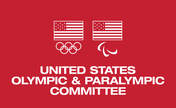
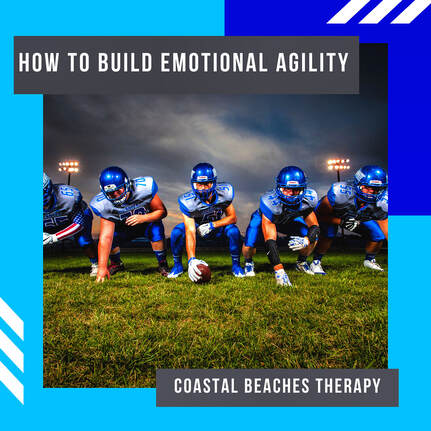
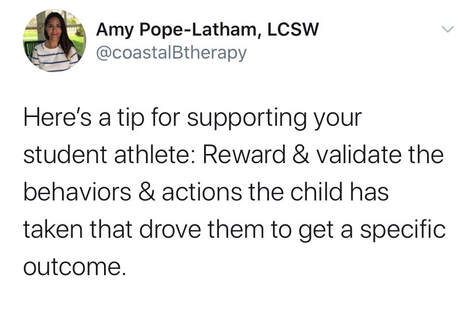
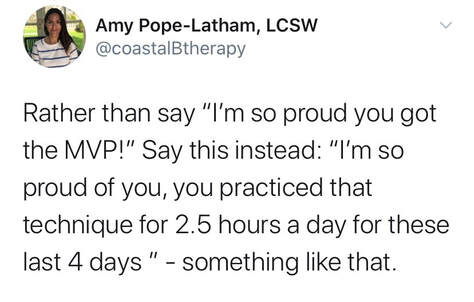
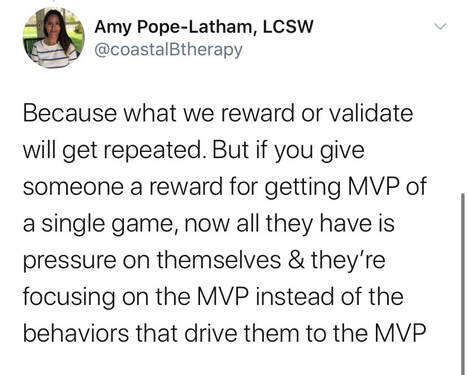


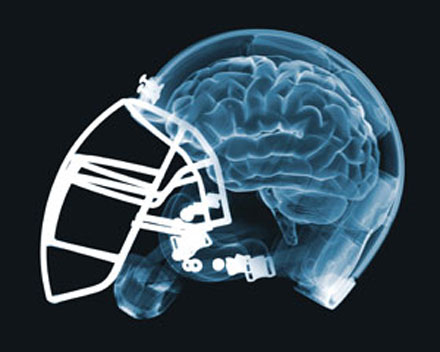
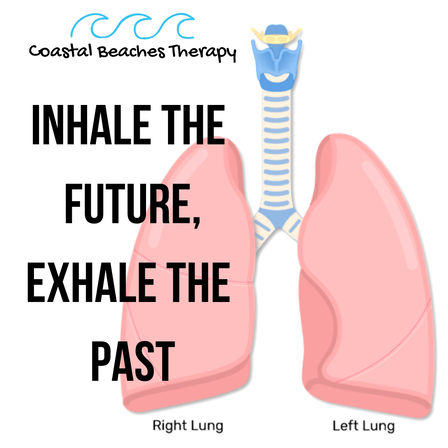
 RSS Feed
RSS Feed